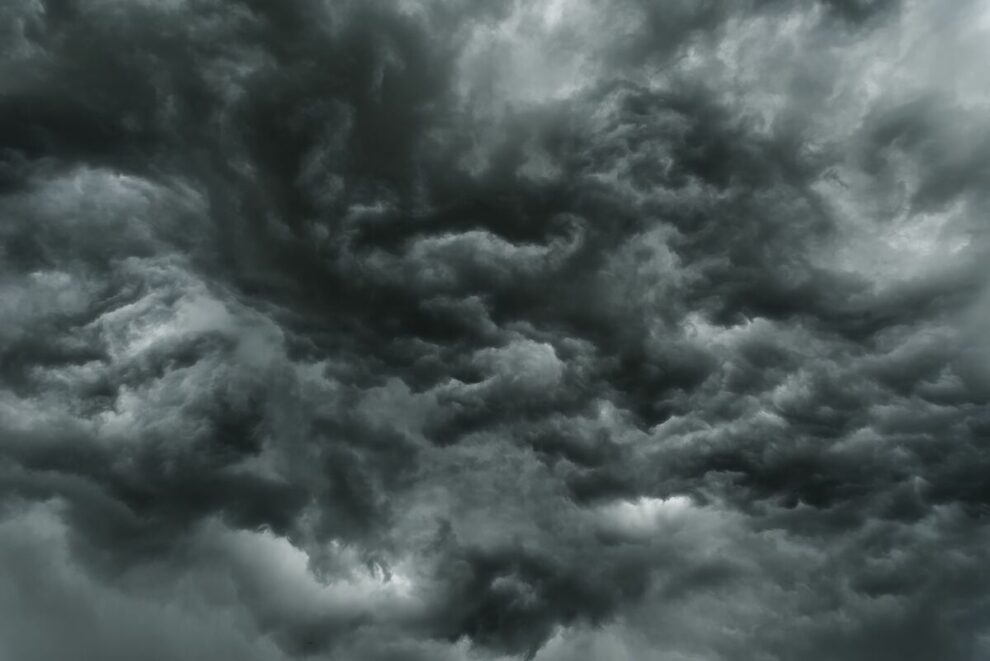As Hurricane Melissa approached Jamaica, the New York Times “The Morning” hyperboled us that “The nation’s prime minister warned that no country in the Caribbean could withstand a storm this powerful.” Reuters “Sustainable Switch” crowed that “The strongest storm on record ever to hit the Caribbean island nation blasted western Jamaica, demolishing homes, knocking down swaths of trees and washing out roadways.” Fortunately Jamaica could not withstand it then did with mercifully very minor loss of life. But the Jamaica Gleaner may have disappointed alarmists even more by cataloging major hurricanes that hit the island from 1800 on, some of them, including ones in 1903 and 1951, more deadly than Melissa. The parent Reuters went even further than “Sustainable Switch” with “the strongest-ever hurricane to directly hit [Jamaica’s] shores”. But just because nobody measured the wind speed of the 1722 monster that killed hundreds doesn’t mean it wasn’t fast. And it’s hard to defend the notion of climate change making hurricanes more common as well as more deadly if you look at the record not the hype.
It really isn’t journalism because they generally don’t. That same “The Morning” item said:
“Melissa has rapidly grown stronger because Caribbean water temperatures are far warmer than usual.”
But if warmer waters cause this kind of thing why was the hurricane season so quiet until Melissa? And what’s with this line from The Atlantic amid much Melissa hype:
“Like many other monster storms of the 21st century – and two others this season alone – Melissa intensified rapidly. From Saturday to Sunday, its winds doubled from 70 to 140 miles an hour.”
The implication is that other monster storms of the 20th century, and earlier, intensified more slowly and we know it. But of course we don’t, because we didn’t have the kind of satellite coverage that lets us see how they are developing or, indeed, that they exist at all. That item was labeled “Science” but as with “Delicious” splashed on a product it’s not necessarily what it claims to be.
We’re also not very impressed with Scientific Hyperbole emailing “Hurricane Melissa is on track to be the strongest storm to ever hit the Caribbean” only to concede that:
“On October 28 Hurricane Melissa became one of the strongest hurricanes ever known in the Atlantic Ocean. The Category 5 hurricane has winds of 185 miles per hour and a central pressure of 892 millibars, placing it in a tie with the 1935 Labor Day hurricane as the third most intense storm ever measured in the Atlantic.”
Still, at least they checked eventually and found that the strongest storm ever wasn’t as strong as two previous ones. Unlike, say, the New York Times “Climate Forward” shrilling ahistorically that:
“At landfall, the hurricane’s sustained winds were 185 miles per hour, making it the strongest storm to ever make landfall in Jamaica or anywhere else in the Atlantic Basin”.
Wrong. Dead wrong. Even with respect to the modern record since the 1935 “Labor Day hurricane” had those winds too, though admittedly you’d have to go to all the trouble of Googling to know it, let alone “ever”. What winds blew in 843 AD or 1417 BC they have no idea.
Thus we give The Times some credit for saying only that:
“Hurricane Melissa, the most intense tropical cyclone to hit the Caribbean island since record-keeping began in 1851, made landfall on Tuesday, causing infrastructure damage, major flooding and power blackouts.”
But it is not true that “record-keeping” began in 1851. As far back as people in Jamaica had writing, when a hurricane hit, blew half the roofs off and killed a bunch of people, the survivors definitely recorded it. It’s why we know about, for instance, the one in 1726. Or 1744. Or 1780. Or 1812. Despite these caveats, Scientific Communism discards the known past for an imaginary future and hollers:
“scientists are already confident that climate change contributed to the storm’s horrifying strength, which sent winds gusting far beyond the minimum required for a Category 5. And Melissa could revive discussions swirling around whether the five categories of the Saffir-Simpson Hurricane Wind Scale are sufficient to describe the monstrous storms that climate change can fuel.”
Not “did fuel”. Just “can fuel”. But if it can, and scientists are sure warming oceans blah blah blah, where are these storms? That article says lately we’ve had five storms that exceeded 192 mph, four of them being typhoons “which are not traditionally assigned categories”. So were there similar typhoons in the past? Um duh who cares?
Oh. We do. And we did Google, so we know that “Super typhoons” are distressingly common. The record only goes back to 1947 meaning many horrors may lurk even in the early 20th century, let alone the 19th and then all that other stuff journalists and the experts who say ignore. But it’s enough to make clear that they’ve always been common and scary.
Sometimes very scary. For instance Typhoon Nancy (September 9-15, 1961) hit a wind speed of 214 mph. Yes, in 1961. Then there’s Violet reaching 208 in… 1961. What’s really annoying here, at least if you want things to be getting worse, is that none have passed 200 since. If warmer oceans are making them stronger, where are the stronger storms?
As for hurricanes, Melissa didn’t crack the scary 192 mph that is becoming way more common except the bit where it doesn’t happen. Indeed the one that came closest was “1980’s Hurricane Allen, which hit 190 mph, nearly grazing the researchers’ suggested Category 6.” Nearly half a century ago. Proof negative.
Naturally the Canadian government rushes in where data fears to tread, hurling money in small amounts at humanitarian assistance while insisting that:
“With climate-related natural disasters on the rise and global warming leading to an increase in this kind of tropical storm, Canada is prepared to support those affected by severe weather crises and continue working with partners on climate resilience and emergency preparedness to ensure a safer future for all.”
We say again: what increase? And they answer not a word.



You have to admire the willingness of the climate crazies to charge the machine gun nests of reality...kind of like the Japanese Banzai charges, admirable courage from the foot soldiers and incredible ignorance of their officers!
Again,every hurricane now will be blamed on AGW.Even in years with fewer than average.In fact,even slightly unusual weather or slightly hotter summers get blamed on we humans.
Good stuff CDN. Keep it coming.
It's interesting that the meteorologist I follow, Ryan Hall, was able to predict that Melissa would rapidly intensify, and a why, like it was a known phenomenon, not something out of the ordinary.
CDN, you and your team did another great job.
I must agree that most fail to see the much larger picture. When someone points out a much broader at the data, they call it 'cherry picking ' the facts. But who's really doing the 'cherry picking'? Before satellites, what about storms that were reported by passing ships but never made landfall anywhere 🤔?? What about storms they actually flew into in the 50's and 60's with wind speeds over 180 mph, that also never made landfall, that they feared would hit the east coast? Oh, right. We forget they ever existed because,, why? Right... doesn't matter, doesn't fit the narrative or the models.